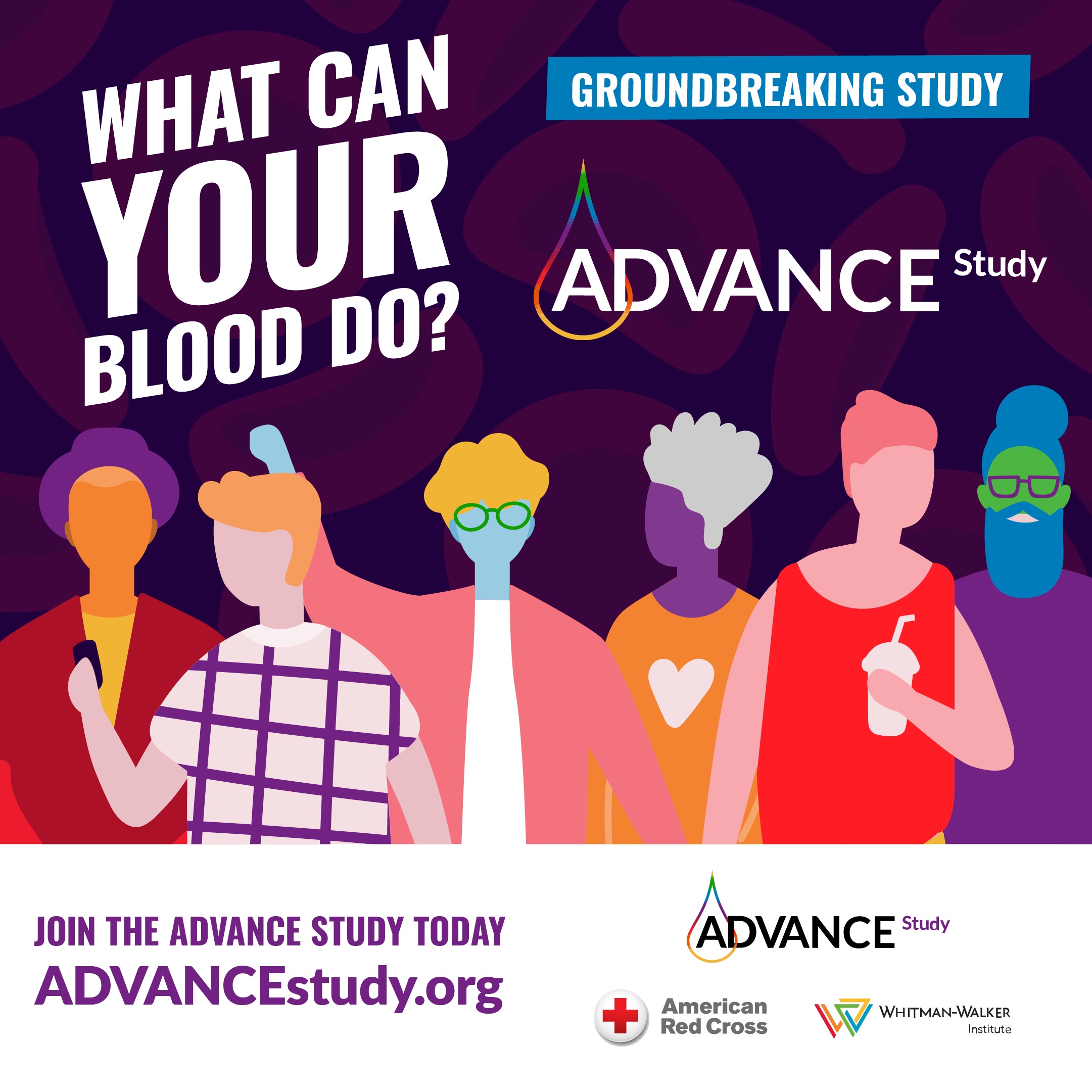By Christian Morris, Benjamin Brooks, Christopher Cannon
Along with healthcare centers and research sites across the country, the Whitman-Walker Institute is partnering with the American Red Cross and blood donation organizations to reach out to gay and bisexual men about a new research study regarding blood donation eligibility. The study is called Assessing Donor Variability And New Concepts in Eligibility (ADVANCE).
The purpose of the ADVANCE study is to assess if specific questions may be able to determine individual HIV risk in men who have sex with men (MSM). The results could provide FDA with evidence to consider changes in policy from the current MSM deferral.
The Food and Drug Administration (FDA) makes blood donation policies that all blood centers in the country must follow. To keep the blood supply safe during the onset of the HIV crisis in the early 1980s, the FDA began recommending that sexually active MSM should not donate blood. In 2015, working groups and committees leveraged advanced HIV testing and screening techniques, and the lifetime ban for MSM was lifted—replaced by a 12-month restriction for sexual activity between MSM. During the COVID-19 pandemic, the FDA announced that, based on the latest research and advancements in blood screening technologies, they were reducing the deferral policy from 12-months to 3-months.
The ADVANCE Study is designed to understand if, by asking carefully crafted and research-informed screening questions, blood collectors can screen potential blood donors for their individual HIV risk factors rather than applying a ban against sexually active gay and bisexual men. The goal is to move away from overly broad questions that exclude potential donors and spread stigmatizing messages about MSM and their HIV risks. The ADVANCE Study is rooted in better science in two ways: 1) research shows that we can ask questions that accurately measure potential HIV risk without excluding people based on their sexual orientation, and 2) HIV screening technologies have vastly improved since the lifetime ban was implemented. Combined, the new screening technologies and better research methods give us the tools to have more inclusive blood donation policies. If you are interested in being a part of this monumental research effort, check out our recruitment website here.



